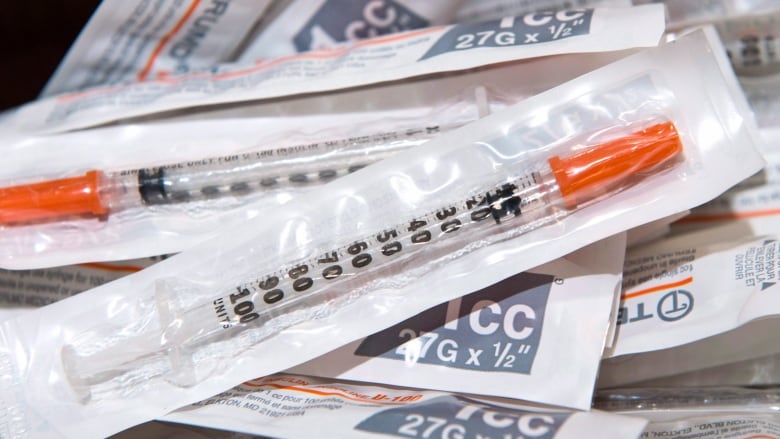Needle exchange program at Kitchener women's prison begins today
Correction Service Canada says launch date was delayed by a week while details are "tweaked"

Inmates atKitchener's federal prison who use injection drugs will have access to clean syringes afterthe launch of a needle exchange program was delayed for a week.
Theprogram was intended to launch at two federal prisons, includingGrand Valley Institutionfor Women, lastMonday, but it wasdelayed due concerns raised during the consultation process.
"There was tweaking the documents and things that needed to be redrafted, so we considered it wise to delay for the week," said Jonathan Smith, manager of epidemiology services for Correctional Service Canada.
The needle exchange program was announced in May as part of a new harm reduction strategy for prisons in Canada.
Correctionshas previously made needles available for inmates with diabetes who require insulin and for people needing EpiPens, but this is the first time drug users in Canadian prisons will have access to clean needles.
The idea is that inmates who want to receive needles will have to consult with health services at their prison. There would then be a review, security would do a threat and risk assessment, and if approved the inmate would be allowed to keep a safe injection kit in their cell.
'Turning a blind eye'
The union representing correctional officers in Ontario protested the program in the week leading up to its proposed launch, calling it a "contradiction" of correction'sdrug policies.
"They are basically closing their eyes to the drug trafficking behind the walls in our opinion," said Rob Finucan, Ontario region president of the Union Canadian Correctional Officers."It's really the contradiction of theCSC'szero tolerance on drugs."
Despite the push-back, Smith maintainedthe program is notclosing a blind eye. Instead, he said they're tryingto reduce the harm drugs can cause.
"Despite interdiction and enforcement efforts, inmates still access drugs and use drugs," he said."This [program]is not condoning that behaviour, but it's recognizing that it still happens."
Safety concerns
But Finucan and the union still have their concerns, including how and where the inmates will be allowed to use the needles.
"Needles in cells leads to safety issues for our members," he told CBC News.
Finucan is also concerned that inmates will be responsible for cleaning up the needles, and that corrections officers have received no real training in advance of the program's launch.
While they are still in the consultation phase, Finucan said the union will try to get as many protocols in placeto ensure its members are safe.
With files from Joe Pavia












_(720p).jpg)


 OFFICIAL HD MUSIC VIDEO.jpg)
.jpg)



























































































